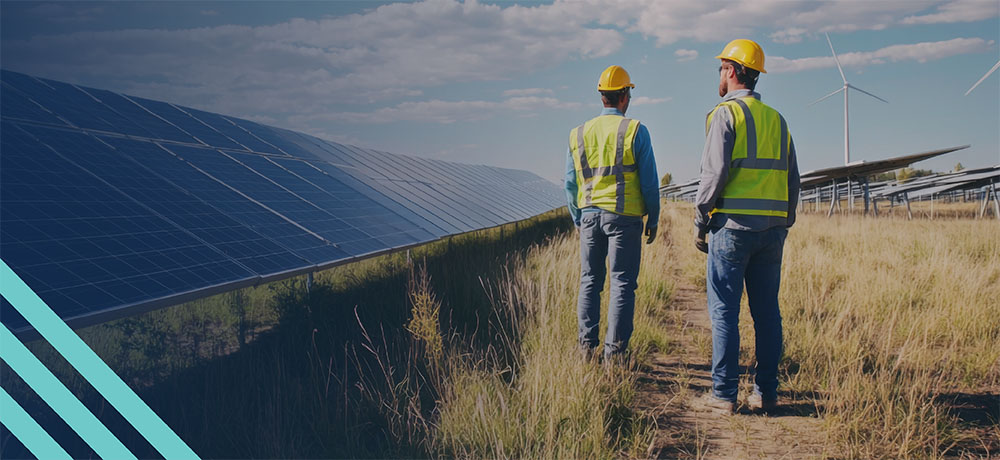
Sustainability is redefining every industry, and the skilled trades are at the center of this transformation. As demand grows for clean energy, green construction and energy-efficient building practices, the skilled trades are evolving rapidly to meet these needs.
From adopting new technologies to reshaping traditional practices, the industry plays a vital role in building a more sustainable future. Today’s projects are now being designed and built using smarter materials and methods, which reduces waste and maximizes efficiency at every stage.
Understanding these trends shaping the skilled trades today can help businesses make informed decisions and stay ahead. By embracing eco-friendly practices, companies not only meet regulatory requirements but also inspire innovation, improve efficiency and build long-term resilience.
Here are the key trends shaping a more sustainable future for the skilled trades.
Building Smarter and Greener
Sustainability is not just a niche concern—it’s a baseline expectation for companies, developers and building owners. As a result, organizations are increasingly investing in energy-efficient buildings, LEED certifications and net-zero designs.
These projects use advanced HVAC systems, energy-efficient lighting and smart building technologies that lower energy use and reduce long-term operating costs.
Beyond lowering costs, these investments deliver tangible benefits: reduced energy bills, stronger building performance and compliance with evolving regulations. They also create spaces that are more appealing to tenants, employees and partners. By prioritizing energy efficiency and smarter building systems, organizations can reduce their environmental impact while positioning themselves as leaders in sustainable design.
The Rise of Clean Energy
The transition to clean energy is reshaping the skilled trades and creating new opportunities across the industry. Expanding solar, wind and battery storage projects are reducing carbon footprints, supporting energy independence and lowering long-term energy costs.
As renewable energy grows, it introduces new skills, advanced technologies and modern construction practices, helping the industry meet rising energy needs while contributing to long-term sustainability goals.
Shifts Toward Electrification
Electric systems—from EV charging stations to heat pumps and electric heating and cooling—are creating major shifts in the skilled trades. These systems can be powered by renewable energy sources, reducing reliance on fossil fuels and cutting carbon emissions. Skilled tradespeople play a key role in installing. By embracing electrification, the industry is helping businesses lower energy costs, future-proof their facilities and support a cleaner, low-carbon economy.
Reducing Waste Through Smarter Building
Smarter use of materials through waste reduction is quickly becoming a cornerstone of modern construction and manufacturing. Practices like material recovery, recycling and reuse during construction and deconstruction are helping to minimize landfill waste while maximizing the value of resources.
This shift toward a circular economy not only reduces environmental impact but also lowers costs and improves project efficiency. For businesses, embracing circular practices also strengthens Environmental, Social and Governance (ESG) commitments, enhances reputation with customers, and builds trust with stakeholders and investors. In this way, waste reduction isn’t just about managing materials—it’s a critical part of building a more sustainable future for the industry.
Technology for a Cleaner World
Technology is reshaping how projects are planned, built and managed—and is making them more sustainable in the process. Digital tools like Building Information Modeling (BIM), sensors and predictive analytics make it possible to monitor energy use, track materials and streamline workflows. These innovations ensure projects are executed more efficiently, reduce waste and ensure projects are both cost-effective and environmentally responsible. Just as importantly, digital transformation allows projects to adapt as sustainability standards evolve, keeping businesses ahead in a rapidly changing landscape.
Training the Workforce for a Green Future
Sustainability isn’t just about adopting new tools and technologies—it’s about having a workforce equipped to use them effectively. Across the skilled trades, upskilling and reskilling programs are preparing workers to take on renewable energy projects, green construction and advanced building systems. As demand for sustainable projects accelerates, these skills are becoming essential.
For businesses, partnering with organizations that prioritize workforce development means access to the talent needed to meet sustainability goals, avoid delays, improve safety and deliver high-quality results. By investing in people as much as projects, the industry is building the foundation for a greener future.
The trends shaping the skilled trades are more than industry shifts—they reflect where business itself is headed. Clean energy, smarter building practices, digital innovation and a skilled workforce are becoming the foundation of long-term success. Companies that embrace these shifts are not only meeting sustainability demands—they’re positioning themselves as leaders in efficiency, resilience and innovation. By working with partners who are driving this transformation, businesses can create projects that perform better, last longer and deliver lasting value for customers and communities. The future is being built right now, and those who adapt will lead the way.
Your partner in sustainable skilled trades—work with PRST to find the tradespeople who are powering today’s sustainable projects.

